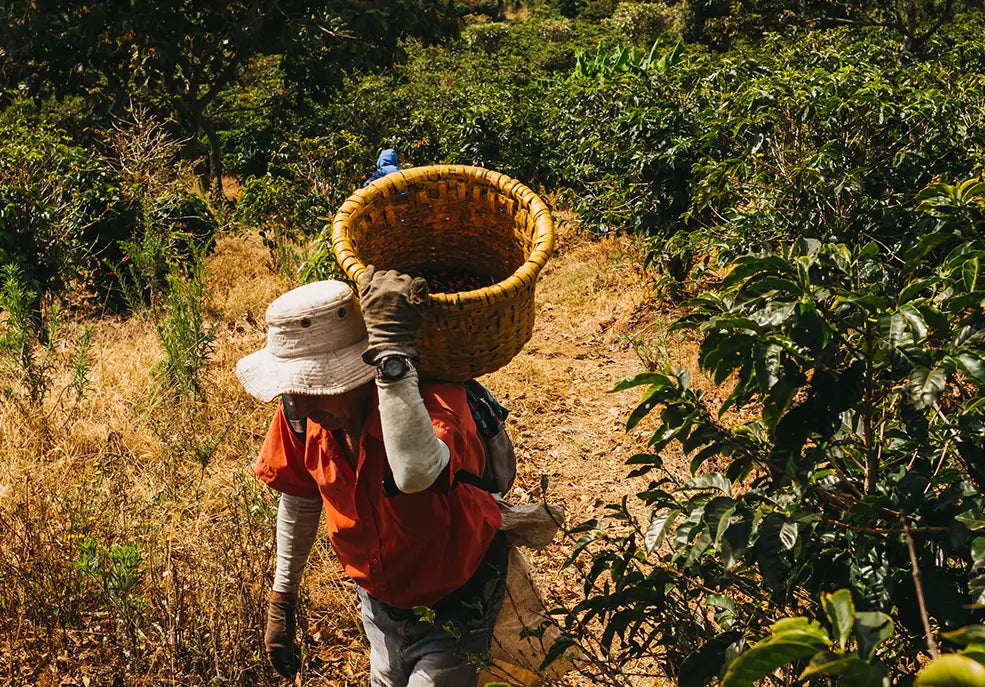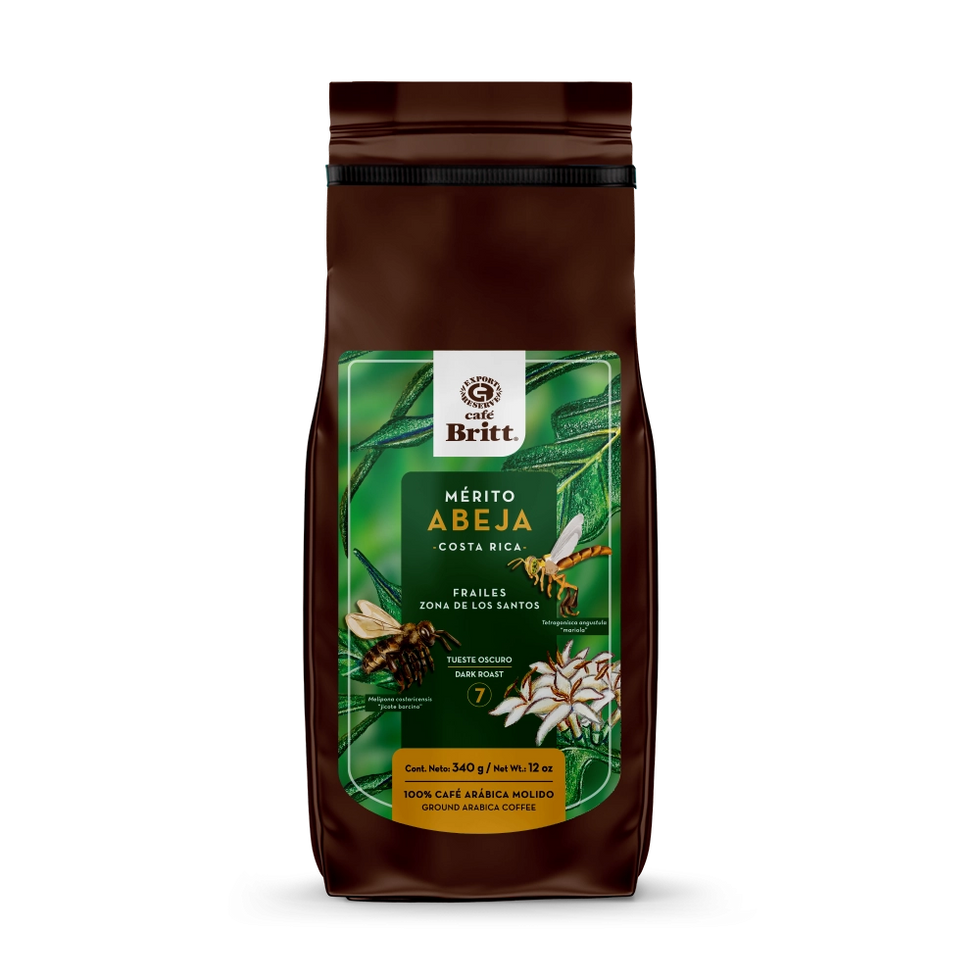The Essential Role of Bees in Coffee Production

At Café Britt, we understand that coffee is not just the result of human effort but also of an interconnected ecosystem where every being plays a key role. Among these natural allies, bees stand out as guardians of biodiversity and fundamental agents in the pollination of coffee plantations. Without them, the balance of the ecosystem and the quality of coffee would be at risk.
The Relationship Between Bees and Coffee
Costa Rica is home to nearly 700 species of native bees, all essential for the pollination of forests and crops. Their interaction with coffee plantations not only supports plant reproduction but also enhances the beans' composition, adding complexity and natural sweetness to every cup.
One of the best examples of this relationship is the Melipona, a stingless bee known as "angelita," which has proven to be a key player in the pollination of Arabica coffee. While this coffee variety is largely self-pollinating, the presence of bees strengthens plant development and improves yield.

An Ecosystem in Balance: The Role of Bees in Coffee Flowering
Each year, during April and May, coffee plants experience a brief yet crucial phenomenon: the coffee flowers bloom for only 2 to 3 days before wilting. In this short window, bees play the essential role of ensuring pollination and contributing to the quality of coffee beans.
- Attracted by Nectar: Guided by their acute sense of smell, bees detect the sweet aroma of coffee flowers and approach to feed on the nectar, an essential energy source for them.
- Pollen Adheres: As they land on the flower to extract nectar, their bodies become covered in pollen thanks to thousands of delicate hairs on their abdomens and legs.
- Pollen Transfer: As bees fly to another flower, the pollen clinging to their bodies transfers to the receptive structure of the new flower, facilitating genetic exchange.
- Fruit Formation: The fertilized flower begins to develop the coffee fruit, known as the coffee cherry, within which the beans are formed. While coffee plants can self-pollinate, various studies have shown that bees' help significantly improves the beans' quality and yield.

Beekeeping and Economic Sustainability
Beyond their ecological impact, beekeeping represents an important economic alternative for coffee producers.
Unlike coffee, which is harvested during specific periods, honey provides a more stable income throughout the year. This allows coffee growers to diversify their economy and make their farms more profitable and self-sufficient.

Challenges and Bee Conservation
Despite their importance, bees face multiple threats to their survival:
- The use of harmful pesticides and fertilizers, which can affect their habitats.
- Deforestation and loss of biodiversity, which reduce their food sources.
- Climate change, which disrupts flowering cycles and bee populations.
To protect them, it is essential to promote responsible agricultural practices that minimize these risks and foster a balance between coffee production and environmental conservation.

Café Britt Mérito Abeja: Celebrating Biodiversity
At Café Britt, we believe that every cup of coffee results from the collaboration between nature and humans. That is why our special edition Café Britt Mérito Abeja pays tribute to bees and their role in producing exceptional coffee.
Because protecting bees means protecting the future of coffee.



